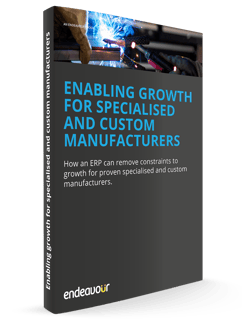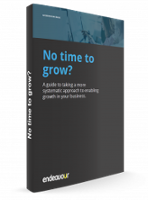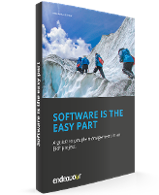What is an ERP system?
ERP refers to a set of business management software functions that businesses use to conduct day-to-day business activities, transactions, and processes including finance, procurement, manufacturing, supply chain, HR, and more. ERP software works across these facets of your business with centralised shared data and processes in a completely integrated manner. ERPs are a scalable solution that can help to consolidate data and smooth out any interdepartmental communication silos. When you bring the right ERP system on board, it keeps up with your needs as they change and expand.
Not only does it bring all your processes together and streamline your business operations, it provides data connectivity within your productivity tools, e-commerce, and even customer engagement solutions. An ERP system will boost efficiency and productivity, and ensure you connect all the dots for greater insights that facilitate decision-making as well as optimising processes across your entire organisation.
How does an ERP system work?
Because ERP systems integrate all business functions, create workflows and streamline processes, you and your teams have more time to work on your core, high-value tasks. ERP systems reduce the resources needed to run a business, while at the same time ensuring profitability, improvement and growth.
ERP systems automate processes wherever possible, which not only saves time but ensures accuracy. A fully automated ERP system performs data entry in the back end, while exchanging information with other areas that need it. For example, when an order is generated for the last item in stock, the ERP system's inventory management modules will record this information and inform relevant departments, so that the inventory can be replenished. The sales team will also be informed so that it doesn’t make promises that it can’t deliver.
ERP systems collect data from all areas of the organisation, putting it into a central location so anyone who needs to can access it. It gets rid of siloes, breaking down the barriers between the front and back office while providing the ability to adapt to new business priorities.
An ERP system typically offers dashboards where users can look at real-time data collected from across the business to measure productivity and profitability.
What industries benefit most from an ERP system?
Modern ERP systems are fully customisable, meaning they can be used across a range of departments, including finance, operations, sales, manufacturing, and construction. For example, the manufacturing industry has been using various ERP systems since the 90's, primarily to manage accounting and human resources. However, ERP systems today are designed to benefit enterprise-level organisations across almost all industries. Here are a few examples.
1. Manufacturing
Manufacturing departments can set up custom alerts, dashboards and modules based on their tasks. Finance benefit from custom reporting and projections, while operations and production teams can set up alerts for low inventory levels, broken machines, and recalls. If combined with a customer relationship management (CRM) system, recall alerts can be sent to every affected customer and vendor. Additionally, sales teams are able to communicate directly with warehouse teams to ensure real-time inventory accuracy and realistic client expectations.

Enabling growth for specialised and custom manufacturers
How an ERP system can remove constraints to growth for proven specialised and custom manufacturers.
2. Construction
Construction companies need to have the right information for making decisions and driving communications. ERP software designed specifically for construction businesses will manage that information effectively and provide industry specific modules such as job costing and retentions to provide a complete and relevant system. By integrating various industry applications into one concise ERP system, construction companies gain all the essential tools they need to manage the full lifecycle of any project. This is crucial, because improper document management, scheduling, and accounting software can delay construction projects and cause them to bust their budgets, damaging a company's reputation and hindering growth.
Information: the most powerful tool for construction projects
How you can utilise ERP software to keep your construction projects on track
3. Not-For-Profits (NFPs)
Like all industries, organisations within the NFP sector need to embrace digitisation and move their business management processes into the modern era. The right ERP system will help NFPs maintain an audit trail and account for every public or donation dollar and become more transparent and reliable. It will also ensure that stakeholders are engaged and informed. The accuracy, efficiency and productivity gains not only ensure NFPs can meet high audit standards but will better deploy staffing resources.
Imagine if NFP stood for 'Nimble Financial Protocols'
How New Zealand Not-For-Profit organisations can use technology to improve financial controls, visibility and reporting









